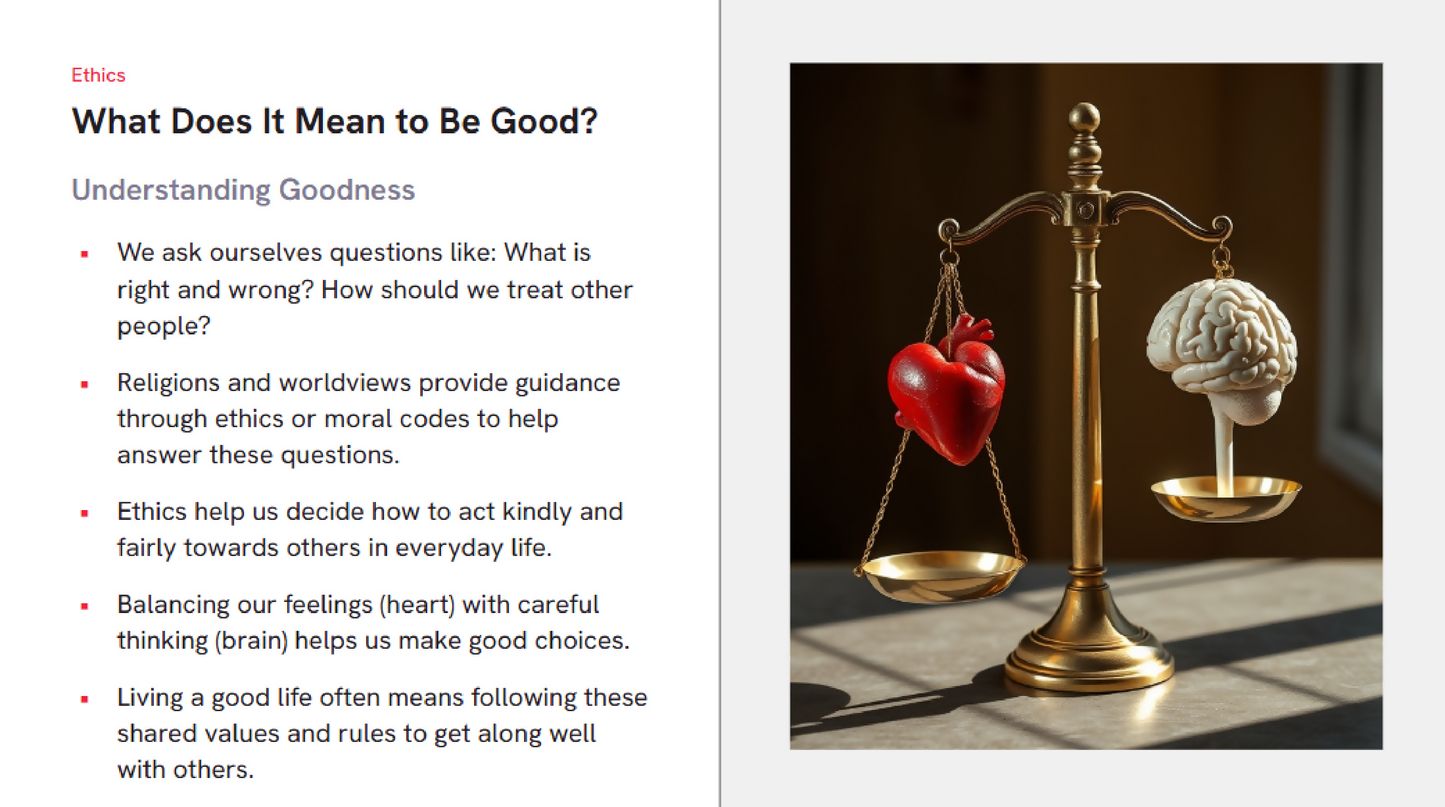Phillips Resources
How Should We Live Our Lives? KS2 RE - Lesson/Assembly - Powerpoint Presentation
How Should We Live Our Lives? KS2 RE - Lesson/Assembly - Powerpoint Presentation
Instant digital delivery upon purchase
Couldn't load pickup availability
Empower your Key Stage 2 students to explore the fundamental question of “How Should We Live Our Lives?” with this insightful and thought-provoking RE PowerPoint presentation! This resource guides young learners through the concepts of ethics, moral codes, and core values that shape how we interact with the world.
Understanding Goodness and Moral Codes:
The presentation begins by asking essential questions like “What is right and wrong?” and “How should we treat other people?”. It introduces ethics and moral codes as guidance provided by religions and worldviews to help us make kind and fair choices. Students will learn that living a good life involves balancing feelings with careful thought to get along well with others.
The Ten Commandments and the Golden Rule:
Dive into the foundational moral rules of the Ten Commandments, a well-known set of guidelines in Judaism and Christianity given to Moses. Students will discover commandments related to:
Relationship with God: Worshiping one God, respecting God’s name, and keeping the Sabbath holy.
How to Treat Each Other: Honoring parents, avoiding harm, and being honest and fair.
The presentation also highlights Jesus’ Golden Rule: “Treat other people in the way you would like to be treated,” emphasizing empathy and respect.
Exploring Core Values: Compassion, Forgiveness, and Justice:
The PowerPoint delves into three crucial shared values, illustrating each with compelling stories and religious examples:
Compassion: Defined as understanding others’ feelings and actively helping them. The story of the Good Samaritan demonstrates extending kindness to everyone, while the Islamic duty of Zakat (mandatory charity) highlights caring for the poor and needy.
Forgiveness: Explained as letting go of anger and resentment, leading to healing and peace. The parable of the Prodigal Son illustrates a father’s unconditional forgiveness, and Yom Kippur, the Jewish Day of Atonement, is presented as a time for seeking and offering forgiveness.
Justice: Introduced as the principle of fairness, ensuring everyone is treated equally and rights are protected. The Qur’an’s emphasis on standing for what is right, even against oneself, is discussed, along with Christian efforts to provide justice for the poor through charities like Christian Aid and The Salvation Army.
Guidance and Shared Values:
The presentation concludes by reinforcing that moral codes act like a compass, guiding us through difficult decisions. It highlights that kindness, fairness, forgiveness, and honesty are common threads across many religions and worldviews, taught through stories, laws, and examples.
This comprehensive resource is perfect for your KS2 RE lessons, encouraging students to reflect on their own values and how they can live a life of kindness, fairness, and compassion every day.




